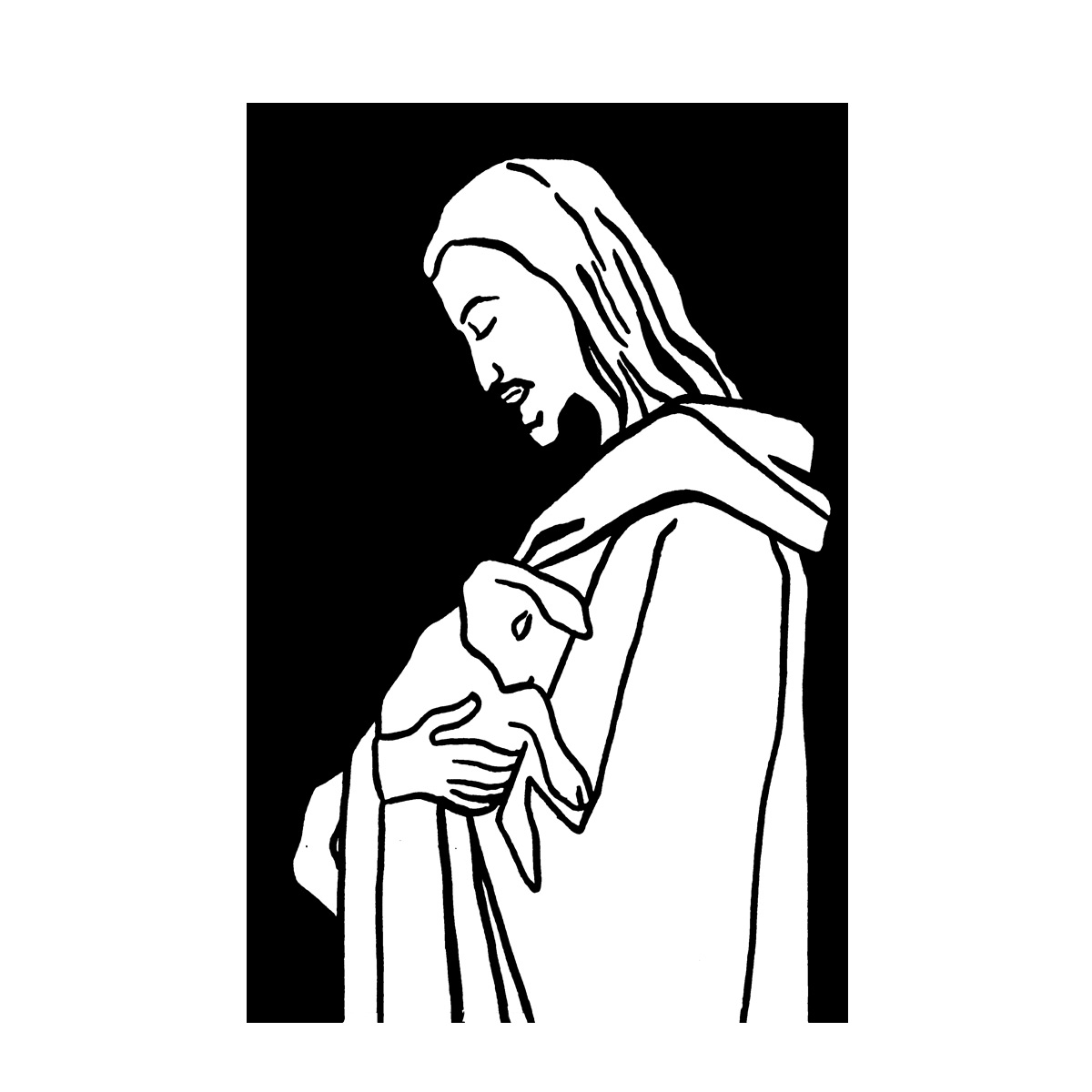This content has been archived. It may no longer be relevant
I came into the poustinia late one evening to find a live mouse caught in a trap in the middle of the floor.
The poustinia is a small log cabin, silent, that smells of wood. It is a place for prayer and solitude.
Usually, unlocking the door and stepping inside is an entrance into peace. There is a large red cross near an icon of Our Lady of Tenderness, a cabinet with a few dishes, a quilt on the bed. The woman before me had left a fire on, and it was warm.
This time, however, there was also the mouse. The trap had been set in a corner so it must have been traveling over the floor at a slow pace, struggling.
While I froze in place, the mouse heaved, horribly, and peddled one foot slowly through the air, looking at me with small black eyes. The mouse’s foot had delicate bones, a long arch, and fine toes. It was a beautiful, carefully made foot.
A better woman would have dealt with the mouse decisively. I have no trouble trapping mice and have emptied many mouse traps. It was impossible, though, to pick up a chunk of firewood and thump it. I knew I’d do it badly—fail to kill the mouse or, perhaps worse, come on too strong in my horror.
The mouse heaved again. Sickened, I scooped it up with the dustpan and ran outside in the dark to dump it.
Then back inside the poustinia, I lit the glass votive candle and thought. I could leave the mouse out there. It was cold and it would die soon enough.
Should I release it from the trap, at least get the wire off its neck? Was the small suffering of a mouse something to pay attention to? It had looked at me. (Was I being ridiculous?) I kept seeing its foot.
I never have a flashlight when I need one. I took the votive candle from the icon—thank you, Mary—and a butter knife and went outside to the mouse.
It was snowing gently, windless and still. I knelt by the trap and set the candle in the leaves, a small steady circle of light. I pried the bar off its neck and it dropped down into the leaves. The mouse was dead. It had curled its front feet together, paws laid quietly one over the other. Just another dead mouse.
Snowflakes fell through the light of the votive candle. I knelt there for a few minutes. Under the quiet snow within the little flame-light, a sweeping tenderness came over me. Not my own—mice don’t usually draw great feeling from me.
This was something beyond me. This was tenderness for me. Tenderness for the snow and the light and myself kneeling there, for the mouse, for the dark woods beyond the cabin, for the sweep of land, for all of it.
“What kind of God is this?” went through me. Who is this God, who made feet for the mouse like that? What is going on?
We come to poustinia to meet up with God. There may be all kinds of other reasons mixed in—a desire for refuge, a desperate need for solitude in a life full of people, straight exhaustion—but at the center is the desire to encounter God.
I had been struggling with a prolonged experience of the absence of God, what felt like a determined lack of response to my prayers. I had begun to take this personally and to doubt the possibility of an authentic connection with Him.
If God was going to connect with me, I had thought, it would come as some kind of gesture during prayer, a revelation of his presence that would answer the doubts I had been stockpiling.
I was startled by the window that had just been opened for me, a window which left my doubts unanswered but went directly to the heart of the trouble—a deep distrust of Him.
I had long harbored the suspicion that God had agendas and plans which did not include my own happiness, a suspicion grounded in a misconception of the nature of God.
Here, suddenly, was an unlooked-for revelation of God’s investment in things small and ordinary, which I secretly knew myself to be. Here was evidence of craftsmanship even in a mouse, of the importance of small life, of the grace that brings beauty from unbeautiful events.
This is the kind of God, I remembered suddenly, who knows the death of each sparrow.
This is also a God who would set up a strange intervention in the life of one tired woman to open a window in the heart, who would suddenly make tangible the presence of his Spirit in the very mundane, very ordinary elements of a late-night mouse in a trap.
I lifted the light and brought it back to the poustinia and set it before the icon. I sat on the quilt and looked at the light for a long time.
In the morning I went out and found the small dead mouse and moved it to a pleasant spot on a rock pile nearby.





